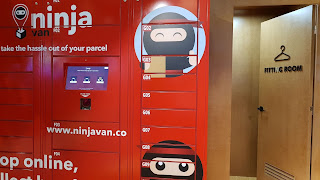- “Double Days” are growing into sales events of their own – during the most recent 9.9 (9th September) sale saw substantial growth in retail sales in Vietnam, Singapore, and Malaysia, of 213%, 183% and 156% respectively.
- Singles’ Day 2019 (11th November) saw a 414% increase in online retail sales and 273% increase in online retail traffic across Southeast Asia. In Singapore, online retail sales and traffic increased significantly, by 477% and 126% respectively.
- In Indonesia, 12.12 (12th December) remained the largest shopping moment within the country (Online retail sales and traffic increases of 258% and 77%)
Criteo, the advertising platform for the open Internet, has unveiled seasonal data for trending shopping festivals for Southeast Asia. In Singapore, Singles’ Day was revealed to be the biggest shopping event of the year in 2019. According to Criteo’s Seasonal Sales Dashboard, which recorded over 2 billion transactions across 5,000 retailers from 35 markets, Criteo found that Singles’ Day 2019 saw a 414% increase in online retail sales and 273% increase in online retail traffic across Southeast Asia. In Singapore, online retail sales and traffic increased significantly, by 477% and 126% respectively.
Singles’ Day, once again, had the highest conversion rate, with an increase of 155% in Singapore, and strong year on year growth of 49% from 2018.
“Singles’ Day continues to be a key retail moment for our region. Specifically, in Singapore, where we continue to see new records in online retail sales and retail traffic on this date, every year,” said Taranjeet Singh, MD, South East Asia and India at Criteo.
“In light of today’s evolving landscape and developments as result of the current pandemic, retailers need to seize the opportunity of Singles’ Day 2020 to succeed with customers and drive strong sales.”
Across Southeast Asia, Singles’ Day remained the largest shopping event in countries including Singapore, Malaysia, and Vietnam. In Indonesia, 12.12 remained the largest shopping moment within the country.
Southeast Asia
- 10.10 (10th October): Online retail sales and traffic increased by 24% and 10%
- Black Friday (the Friday after Thanksgiving): Online retail sales and traffic increases of 44% and 20%
- Cyber Monday (the Monday after Black Friday): Online retail sales and traffic increases of 42% and 25%
Indonesia: 12.12 was the winning shopping festival, followed by Singles’ Day:
- 10.10: Online retail sales and traffic increases of 158% and 40%
- Singles’ Day: Online retail sales and traffic increases of 149% and 60%
- 12.12: Online retail sales and traffic increases of 258% and 77%
Taiwan: Singles’ Day was the largest shopping moment, followed by 12.12 and Black Friday:
- Singles’ Day: Online retail sales and traffic increases of 400% and 165%
- Black Friday: Online retail sales and traffic increases of 59% and 49%
- 12.12: Online retail sales and traffic increases of 149% and 61%
Criteo data also revealed that “Double Days” are growing into sales events of their own. In Malaysia and Vietnam for example, 7.7 (7th July) turned out to be an emerging sales peak this year, with increased retail sales by 132% and 64% in the two countries, respectively.
Most recently this year, substantial growth was recorded in retail sales in September, during 9.9, particularly in Vietnam, Singapore, and Malaysia, of 213%, 183% and 156% respectively. In October, during 10.10, the Southeast Asia region recorded an overall 46% increase in sales when compared to the last two weeks of September, and saw a conversion rate of 460% during the retail moment.
Criteo also noted that shopping apps continue to grow in popularity amongst users in Southeast Asia. According to Criteo’s Peak to Recovery study, which surveyed over 13,000 consumers worldwide in May 2020, 53% of consumers discovered at least one form of online shopping during the peak of the pandemic – be it purchasing through mobile apps, or picking up online purchases in stores – that they wish to continue.
“The unique circumstances of navigating COVID-19 have resulted in evolving consumer behaviour with regards to online shopping. Not only are people shopping more, they are also more inclined to using apps for retail,” explained Singh.
“In Q3 2020, our data revealed that the share of app sales was 75% for retailers with a shopping app and that Southeast Asia was one of the regions with the highest app share globally. With shoppers now inclined toward in-app retail experiences, retailers should step up efforts to engage consumers through these mediums during key retail moments like Singles’ Day for maximum traction.”
Jo Bjordal, CMO, ZALORA explained, "COVID-19 has changed shopping behaviour across our markets, with more people shifting to buying things online. The demand and consumption patterns for product categories have changed dramatically too.”
When it came to key changes in retail preferences, Bjordal elaborated on spikes in consumer demand that fashion e-tailer ZALORA has seen in the last recent months, even during the last Double Day, 10.10. “Within the lifestyle segment, we have seen a spike in demand towards the loungewear, beauty, kids, as well as continued growth in sports and wellness categories. In fact, these categories at ZALORA have grown by as much as 400% as seen in this year’s 10.10 sales days, as people continue to prioritise personal wellbeing and spend more time at home. On the other hand, demand for women’s apparel and occasion wear products has declined as compared to pre-COVID-19 levels, although this is expected to pick up again once the situation around COVID-19 stabilises, and countries gradually ease into their respective re-openings,” he said.
Criteo said brands should keep in mind the following best practices to drive maximum traction with customers as they get ready for Singles’ Day this year:
Target the most valuable audiences
Through website and campaign optimisation, brands can be assured of a wider reach from new and existing customers. This includes finding new, interested shoppers and re-engaging existing customers through data and insights.
Maximising customer value
Customers are looking to get the most value from their purchases, so it is key to ensure that this is communicated to customers, and brands look for unique ways to differentiate their offerings, apart from providing substantial discounts in cost. This could include unique and practical customer services, including safer store shopping options and online-meets-offline purchasing to address customer concerns during the pandemic.
Enhancing ad relevance
It is not enough for brands to advertise Singles’ Day deals – they need to ensure that ads are served in the right context and with the relevant content to their specific audience. This means considering the timing at which ads are served, preferably at a time when a consumer is likely to make a purchase.
.png)

.jpg)













